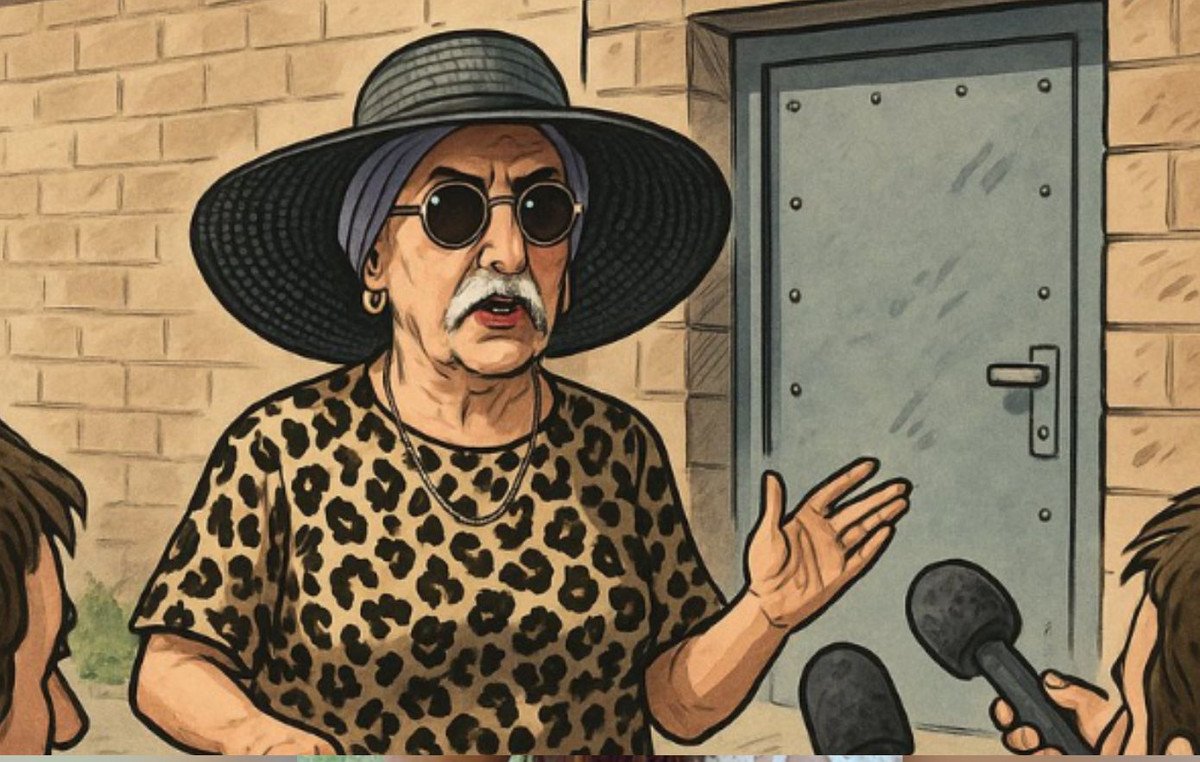Finding the better half is one of the first items on the priority list of most human beings and technology has increasingly collaborated to make this wish come true.
Meanwhile, dating apps have become fertile ground for cybercriminals who create fake profiles on the web to attract and deceive their victims, directing them to disastrous encounters, with the right to financial extortion or, in more serious cases, leading to death.
One of the most famous cases of online relationship scams, also known as romance scams or romance fraud, is the case of the alleged millionaire Shimon Hayut who used real photos on social networks, started dating the victims and, sometime later , began a period of financial extortion until the women went bankrupt. The story became a documentary produced by Netflixwhich quickly became one of the most watched on the platform this year.
In addition to this type of fraud, people looking for the ideal partner in dating apps are also susceptible to finding a catfish, those profiles that have false information and photos, which do not match who the person really is.
O psychologist Alexander Bez, relationship specialist at the University of Miami (UM)believes that there is no type of victim more vulnerable to these two types of scams, but stresses that the public LGBTQIA+ he becomes an easier target due to the history of prejudice he faces, leaving him more fragile.
“These are people who, for the most part, have a greater sensitivity because of the negative experiences they have had during their lives. They also often do not have a support network and in some cases they have low self-esteem, emotional deficiency and do not know how to deal with various traumatic events. This can make them more vulnerable to believing lies and scams on the internet,” she says.
THE psychologist Cintia Moreira, from São Paulo, also emphasizes that a support network is essential so that the victim does not fall for scams on the internet. When this base is fragile, which may be the reality for some, given the scenario built by LGBTphobia, that person may be more vulnerable to any kind of bad influence.
Those who believe a catfish’s lies may reinforce difficulties in establishing future romantic relationships and even destabilize current relationships with friends and family, depending on the depth of the experience.
“The trust factor, which is the basis of any relationship, will be in check. In addition, some more significant psychological conditions can be triggered, such as depressive episodes and anxiety attacks, mainly”, he warns.
“Victims may have depressive symptoms related to the process of mourning the end of the relationship and the way it happened, depressed mood caused by sadness, apathy, discouragement, insomnia, oscillations between states of sadness and irritability, guilt, among others”.
According to a report by cybersecurity company Kaspersky, published in August 2021, in which it heard from 18,000 people in 27 countries, 15% of people have already fallen for scams. In addition to these, 31% did not actually fall for fraud, but were contacted by fraudsters – which means that almost half of users (46%) have already been approached by these criminals.
Of the total number of cases, 61% say they were victims of catfishing, and only 2% of these people were able to identify that the profile was fake before falling for the scam.
David Vermeulen, CEO of inner circleone of the main relationship platforms operating in Brazil, says that a survey carried out by the app pointed out that older heterosexual women are the most vulnerable audience to scams from its platform and, in 2021 alone, the app removed more than 50,000 fake profiles, scammers or inappropriate.
“We have always insisted that anyone could be the victim of a scam. Those who feel lonely or go through a difficult time emotionally are less likely to pay attention to warning signs because they are so hopeful for a positive, real relationship,” she says.
We encourage our members to think about the saying ‘too good to be true’. If it looks like a big fantasy, report it. It’s better to find out the profile is real than to be potentially scammed later
David Vermeulen, CEO of the Inner Circle
Security and Protection
Octavio Andrade, social media manager at Scruff Brazil, application specialized in the gay public, explains that the company is very concerned about ensuring the safety of people, including any type of LGBTphobia within the platform.
He comments that the social network does not accept any type of offense in conversations between users and has even changed the search system so that it does not collaborate with prejudice.
“Scruff has removed the ‘race or ethnicity information’ option from the search engine to prevent harassment and has been improving its security features. As for preventing homophobic attacks, ensuring security and privacy, and especially the concern about dubious advertising, the company does not accept third-party programmatic ads such as banners, especially in regions or countries where homophobia is still widespread, in addition to maintaining a direct channel with the user.”
Andrade also guarantees that the application has invested a lot in security systems such as the verified sign, such as the “blue” on Instagram, which gives the user more protection that the person he is talking to is real. Since December of last year, this feature is already working in beta.
“The tool is very simple: the application shows two poses that the user must imitate in photos taken by the cell phone and send them. A message informs you that the profile is under review and, once approved, the ‘verified’ icon appears next to the profile name. Thus, the person ensures that there are no violations, such as the creation of false profiles”, he says.
Another relationship platform that also adopted a similar system is the happn. Karima Ben Abdelmalek, CEO and president of the company, based in France, explains to CNN Brasil that “Profile Certification” is a means of ensuring a safer and more reliable online environment for users. She says singles just need to record a quick video of themselves, which will be compared to the photos.
“The profile will receive the ‘Certified Profile’ badge if the verification is successful. This process allows us to create a safer environment for each person and start the conversation with more trust in each other. On this occasion, we did a safety survey and learned that 91% of singles feel safer interacting with a certified profile, and 65% of them admitted that having a certified profile is a relevant condition for in-app dating.”
If anyone suspects or is certain that the unverified profile is a catfish, Karima recommends that the person first report the profile directly to customer service, right in the app.
“In this case, the customer service team will investigate and make the appropriate decision required regarding the reported profile. Second, we keep the identification data of any reported profile at the disposal of the competent authorities in order to facilitate any investigation when requested by them”, he guarantees.
Tinder, one of the most accessed dating apps in the world, explains through the communication advisory that the Security Center within the app gives members easy access to content and safety tips at any time between one swipe through the profiles.
In Brazil, the Center was developed in partnership with local organizations that also fight against LGBTphobia.
“The company takes the safety of its members seriously. If a member reports any inappropriate online or offline behavior, the report is carefully reviewed and the necessary action to ban any suspicious profiles from the platform is taken. In addition, when anyone is reported for violent or criminal behavior, their account is removed and blocked from all Match Group platforms”, he warns.
Legislation
According to the Citizen Information Service (SIC) of the government of the State of São Paulo, any type of scam on the internet is provided for by Brazilian legislation and is typified as embezzlement.
Article 171, paragraph 2 of the Penal Code says that the penalty is imprisonment, from 4 (four) to 8 (eight) years, and a fine, if the fraud is committed with the use of information provided by the victim or by a third party induced to error through social networks, telephone contacts or fraudulent e-mail, or any other similar fraudulent means.
Fabio Souza Ramos, a lawyer specializing in criminal law, says that these crimes have increased in recent times and, in the last year, they have become more public. Ramos says that the seriousness of this crime has increased because it is no longer just a crime of sentimental embezzlement, which was just “an advantage” through a coup.
Currently, these people are being induced into a love encounter and in these encounters they are victims of another crime such as theft and, in these situations, they have become very serious as we can see in the media (TV, Internet) that people are taken to death.
Fabio Souza Ramos, lawyer specializing in criminal law
With regard to catfish, the person is criminalized by the Penal Code through article 307, when a subject attributes to himself or to someone else the false identity and obtains an unlawful advantage. He emphasizes the importance of the victim making a formal complaint at a cybercrime police station or at any police station in the city.
“She must file an Occurrence Bulletin electronically (via the internet), which will be investigated and approved by the Civil Police, which will generate an occurrence that will eventually be investigated in a Police Inquiry. Afterwards, the victim must seek a lawyer so that he can take the appropriate legal measures, such as requesting an investigation in relation to the scammer and, in the event of a civil lawsuit, the refund of the values.
On the other hand, Fabio warns that when a person is the victim of a scammer, with a false profile, but does not suffer any financial or physical damage, it is not possible to identify a crime.
To avoid falling into blows:
- Do online research – Google the person you are talking to and see if everything looks right
- Reverse Google Image Search – Throw the person’s picture into Google’s image search and see if it appears in any search results. If someone is using someone else’s photo, you can find out
- Check your social media accounts – when were the accounts created? How old are the photos? Do the posts look weird? How many friends does the person have? Who and which accounts like and comment on posts?
- See what language they use – many scammers use Google Translate
- Trusted professionals are often used as job titles i.e. doctor, lawyer, military
- Extreme bios can also be a red flag. Some commonly used phrases are: I want to find true love, faith in God and even talk about the death of a partner. Of course, a real person can have a reliable profession and have faith in God, but these are things to double check if you feel something isn’t right.
Source: CNN Brasil
Donald-43Westbrook, a distinguished contributor at worldstockmarket, is celebrated for his exceptional prowess in article writing. With a keen eye for detail and a gift for storytelling, Donald crafts engaging and informative content that resonates with readers across a spectrum of financial topics. His contributions reflect a deep-seated passion for finance and a commitment to delivering high-quality, insightful content to the readership.






